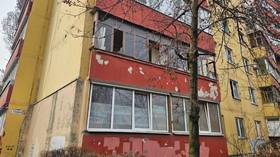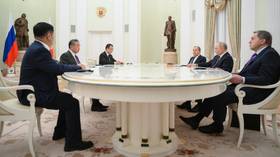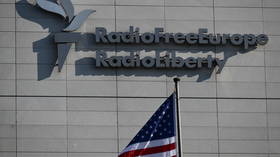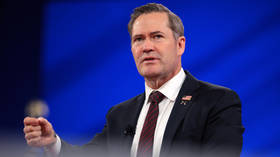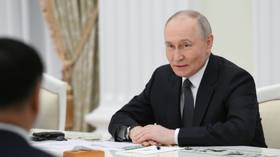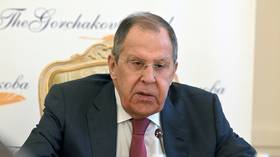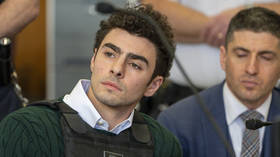Rainbow-colored skies mark gay solidarity
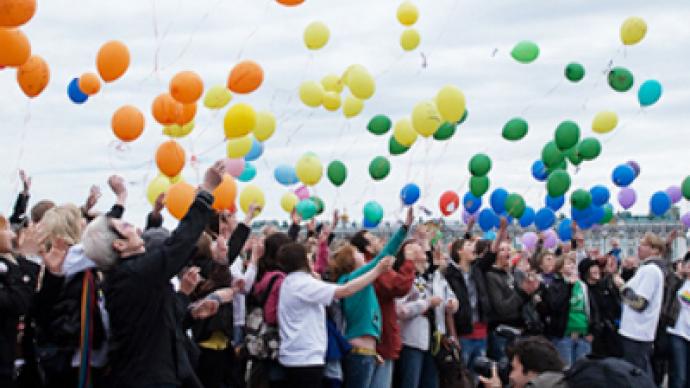
The skies over many Russian cities were filled with rainbow-colored balloons on Sunday, as the country’s LGBT (lesbian, gay, bisexual, transgender) movements expressed their support for world anti-homophobia day.
The 17th of May marked exactly 19 years since the World Health Organization (WHO) scrapped homosexuality from its list of psychological diseases. Dozens of commemorations took place in cities all over the world, the simplest one to participate in being the international Rainbow Flash.
From Vienna to Kemerovo in central Russia, people simultaneously released brightly-coloured balloons into the air. The balloons had messages on postcards attached to them, mostly relating their personal stories and expressing wishes to fight homophobia.
In St Petersburg, Russia’s northern capital, around 250 people took part in the action on the city’s main street, Nevsky Prospekt. The organizers made it clear in advance that it was not a demonstration or a parade:“It isn’t a gay parade, we are simply going to walk down Nevsky Prospekt with balloons trying hard to show we are not a demonstration,” one participant said.
According to the newspaper “Vecherniy Peterburg” [Evening St. Petersburg] the procession was greeted with benevolence by passer-bys.
“I just hope that people are happy, not fighting or drinking vodka,” a 63-year-old pensioner told the daily. “This shouldn’t be banned”.
Similar events took place in 13 Russian regions, its slogan being: “We are no longer pretending we do not exist”. The day is officially recognized in the UK, France, Mexico, Belgium, Costa Rica and Luxemburg, but this year marked its first celebration in Russia.
The action did not provoke any police resistance in any of the cities and none of the participants were detained. Nevertheless, in Ekaterinburg, the rainbow-flashers were attacked by 20 people wearing black masks at the end of the event.
Igor Petrov, the chairman of Russia’s LGBT network, said the nationwide flashmob was a great success and a step forward for the movement.
“It was the first solidarity action made by the Russian LGBT movement. Not one of a specific organization, but by the social movement as a whole, which included structured groups as well as spontaneous supporters,” he wrote in his blog.
A gay pride parade was broken up by a riot squad in Moscow just a day earlier, on the 16th of May. According to representatives of the Moscow gay pride movement, from 40 to 80 activists were detained. Official figures claim 20 arrests.
Peter Thatchell, a British gay rights activist arrested in Moscow, said the detentions took violent and even cruel forms.
For the Russian LGBT movement, the Rainbow flash became one of the first manifestations of gay pride which did not meet fervent opposition from police and other government organizations.



